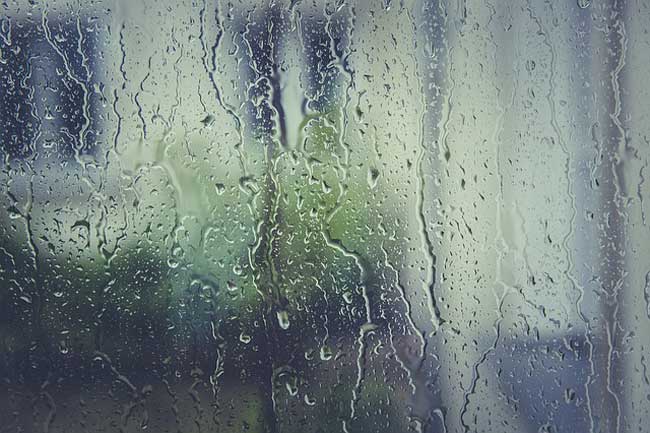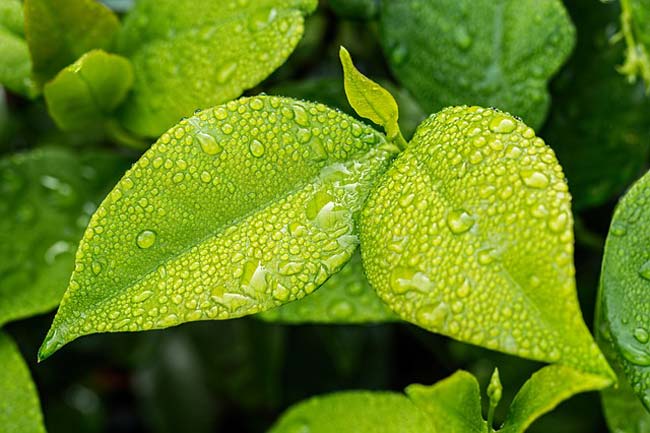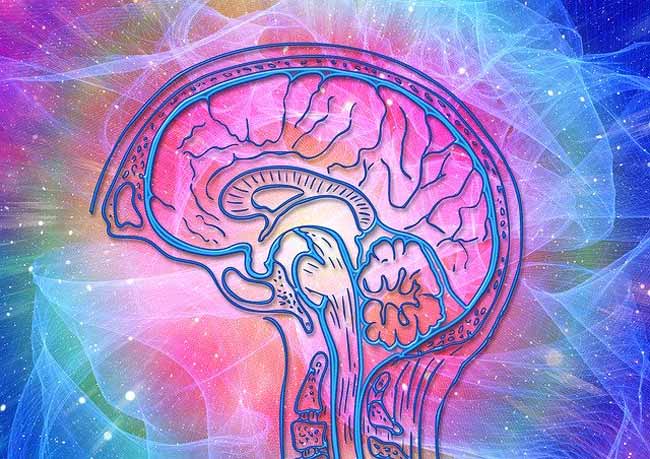Why is rain so relaxing?
What is it about rain that when you hear its pitter-patter on the roof you feel a sense of calm and your thoughts become centered and pensive?
Why is it that rain sounds are used to help babies sleep?
There are three core theories as to why rain is so therapeutic, each relating to our connection to nature. In this post I'll explore these theories in a bid to better understand the influence rainfall has on the brain.

Nothing more calming than the pitter patter of rain on the window while you cosy up inside.
1. The Womb Theory
In the early stages of a baby's development in the womb, it is surrounded by amniotic fluid, which is largely made up of water. By 20 weeks this fluid has almost exclusively been replaced by the baby's urine.
In these early stages of life, it is this fluid that protects the amniotic sac (where the baby is housed) that provides protection and security for the baby.
So one theory is that we have an early maternal connection to water, which stays with us throughout life.
It actually makes sense when you think about it: when you are lying on the sofa or in bed and you can hear the rain dropping on the windows and on the roof, you become the baby in the womb again. Being surrounded by this water provides a sense of security and peace.
Consider that when you are by the sea you also feel a similar sense of belonging and internal peace. And when you are near or next to a running stream, a wave of contentment comes over you.
Whether this analogy is wholly accurate, it is undeniable that we do have an innate connection to water, which leads me onto the next theory.
2. The Water Source Theory
Historically humans would have always sought to reside near a fresh water source. This is essential for survival: for drinking, washing and potentially fishing.
Though some humans would have lived near the sea, we cannot survive drinking seawater, so we would have had to live near a fresh water source.
Having this water source nearby would make a human feel safe and secure; because it would have been essential for survival – there weren't pipes and taps back then.
Consider this for a moment: imagine a long, hot, dry summer, where there has been no rain for 6 to 8 weeks. Indeed, some people live in countries where months go by without the sight of a drop of rain.
When the rains come it is celebrated and provides a sense of relief and security for the local community; because it means that crops will grow and survival is once again assured.
Rain provides reassurance and security. The brain's reaction to rain is by default generally a positive one – unless of course you are facing the potential of a flood or devastating storm.
But that leads to another thought: Humans revere water, we respect it. Water gives life but can also take it. That almost parental respect we have for rain can bring us both security and insecurity.
3. The Great Outdoors Theory
The great outdoors theory, as I call it, links into the water source theory, but is a more general theory surrounding the fact that historically we have lived outdoors.
To hear the rain dripping off of the trees outside of your cave dwelling would have provided a sense of happiness, because it meant that food will grow and the local freshwater source – be that a stream or a lake – will be replenished.
Rain supports life and we can't live without it.
In this regard, our general connection to water is a holistic one that consists of the many ways in which water is connected to our lives. And of course rain is the way in which water is moved from one area to another.

Plants need the rain. We need plants to breathe and to eat.
4. The Musical Properties of Rain
Regardless of the above, rain has a wonderful hypnotic property.
Rain forms a hypnotic composition because it contains many frequencies with equal intensities; this is commonly known as white noise.
You may have heard of white noise generators, which are often used to help people relax and commonly to help babies sleep. You can buy a white noise machine/generator pretty cheaply these days:
=> See white noise generators on Amazon
White noise is used as a catch-all term of a sound that covers the entire frequency spectrum and is therefore able to drown out the noise. Here are some examples that may be considered white noise:
- Nature sounds: rain, sea/ocean waves, crickets chirping, jungle ambience
- machine noises: air conditioning unit, washing machine
- ambient soundscapes: aircraft interior, crackling campfire
Rain doesn't always sound the same though and therefore is not always definitively white noise. This is because the environment through which it falls will color the sound somewhat and alter the texture of the sound.
Because rain, and indeed many types of white noise such as sea waves, a stream running, or an air conditioning unit provide a constant wave of sound frequencies, it has a brain entraining effect.
This is why rain is commonly used as an integral part of a meditation music composition, or background tracking to tones like binaural beats.
You will know this from times when you have sat down and the rain has begun to fall outside; it captures your attention immediately and draws your mind toward it.
Listening to rain becomes increasingly relaxing and many people find that in this situation they want to close their eyes, fall asleep, or simply to sit for a while with their thoughts.
Rain is therefore a very useful tool for introspection and meditation.
Why Rain May Make You Feel Happier
So why is it that way makes us feel more contented and happy?
From a scientific perspective it could be because of negative irons.
Negative ions are produced when large amounts of water molecules collide – think waterfalls, ocean waves and rainstorms. All these things make negative ions. We can't see, smell or touch these ions but we inhale them through the air
Some believe that when negative ions reach our bloodstream they create a chemical reaction, thereby alleviating feelings of stress and anxiety.
One research study found that negative ions had a positive effect on people with Seasonal Affective Disorder.
The participants were exposed to high-density negative ions every morning for five weeks. Over half of the participants reported their SAD symptoms had lessened by the end of the study (1).
Another study showed that natural sounds make us feel more relaxed and promote stress recovery (2).
Interestingly, one study that looked at the potential for rain sounds to boost arithmetic ability found the following:
Introverts were always faster than extroverts in solving mathematical problems, except when the latter performed calculations accompanied by the sound of heavy rain, a condition that made them as fast as introverts (3).
We don't really need science to tell us that interactions with the natural world are beneficial for our health.
We all know that even just a short walk through a forest makes us feel part of the interconnected natural world and helps us de-stress from the hustle and bustle of everyday life.

Rain is often associated with romance in books and films. This links back to the idea that rain provides us with security and warmth (the womb), and subsequent happiness – like a partner would.
How to Find a Good Rain Recording
The problem with rain is that it is very difficult to record, or at least to make a recording that replicates what you hear in the natural environment.
This is because you need fairly advanced equipment to make a high-quality recording. The problem with rain is that it can sound very thin and tinny when recorded and can be quite sharp on the ear.
It also depends on the environment in which the rain is falling.
If the rain is falling on a metal roof, for example, it is likely to exacerbate the high frequencies and, while listening in real-time may sound very pleasant, listening to a recording may be off-putting.
That isn't the only challenge. A lot of rain recordings, those on YouTube for example, are artificial.
So a producer may take a rain low-quality recording and add artificial white noise to it to try and enhance the sound.
This may sound quite good but because our ears are so well tuned to the sound of rain is very easy for the brain to detect an artificial recording. It therefore doesn't give you the same relaxing feeling as a natural recording would.
If you are looking for a really good rain recording then you should probably buy a field recording recorded by a professional on high-quality equipment. A field recording is a term used for an audio recording produced outside of a recording studio.
=> Buy a professional rain recording here
I hope you enjoyed this insight on the theories behind why rain is so relaxing.
The fantastic thing about the natural world is that it provides so much free therapy. This is therapy that we should be exposed to every day. Indeed we were born to interact and live amongst the natural world and benefit from our innate connection to the land and weather systems.



Leave a Reply